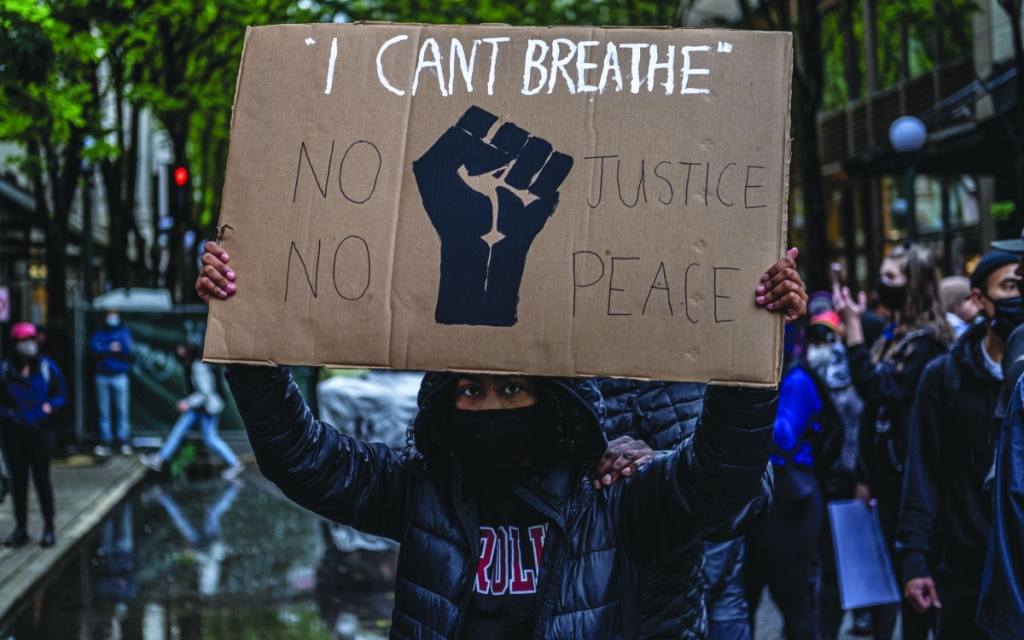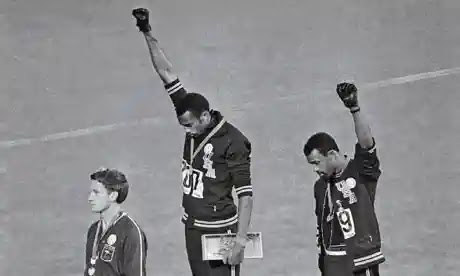The idea that a Police Officer is being tried for murder of an individual who was either under arrest or identified as a suspect is a rare occasion and even rarer – a conviction. This goes back to Rodney King and even earlier when in the 60s during Lady Bird Johnson’s visit to San Francisco, a young black youth in Hunter’s Point that led to riots never led to any investigation into Police violence regarding the death Matthew Johnson, Jr. And that story has been pushed into a multitude of others at the time over the same issues that continue to this day, so what has changed? Well this. But Radley Balko who has written on the subject for decades is less optimistic about what the outcome will mean overall and there is this essay below that also weighs in on the subject.
When police kill people, they are rarely prosecuted and hard to convict
The Washington Post Mark Berman April 4 2021
The footage has played multiple times inside the downtown Minneapolis courtroom where Derek Chauvin is on trial for murder, showing George Floyd, a Black man, gasping for air under the White police officers knee.
That video is the centerpiece of the case against Chauvin, which prosecutors emphasized by urging jurors to “believe your eyes.”
But prosecutors face a steep legal challenge in winning a conviction against a police officer. Despite nationwide protests, police are rarely charged when they kill someone on duty. And even when they are, winning convictions is often difficult.
Between 2005 and 2015, more than 1,400 officers were arrested for a violence-related crime committed on duty, according to data tracked by Philip M. Stinson, a criminologist at Bowling Green State University. In 187 of those cases, victims were fatally injured in shootings or from other causes. The officers charged represent a fraction of the hundreds of thousands of police officers working for about 18,000 departments nationwide.
Police charged with committing violent crimes while on duty were convicted more than half the time during that period. In the most serious cases — those involving murder or manslaughter — the conviction rate was lower, hovering around 50 percent.
Chauvin’s case is different from many of the most high-profile police prosecutions in recent memory, in part because it centers on an officer who never fired his gun, experts say.
There are a few reasons it is hard to convict a police officer, according to legal experts and attorneys who have worked on such trials: Police have considerable leeway to use force, can cite their training and are typically trusted by juries and judges.
“The law favors the police, the law as it exists,” said David Harris, a law professor at the University of Pittsburgh and an expert in policing.
“Most people, I think, believe that it’s a slam dunk,” Harris said of the case against Chauvin. But he said, “the reality of the law and the legal system is, it’s just not.”
Attorneys who have worked both sides of these cases say they invite heightened scrutiny and raise a host of issues about the authority police have, the force they are allowed to use and the dangers they could confront on the job.
“It’s fundamentally different than handling any other kind of case,” said Neil J. Bruntrager, a St. Louis-based attorney who has represented officers in high-profile cases.
A key element that experts say factors into many of the cases is the Supreme Court’s 1989 Graham v. Connor decision, which found that an officer’s actions must be judged against what a reasonable officer would do in the same situation.
“A police officer can use force, but it has to be justifiable,” Bruntrager said. “And what the Supreme Court has told us is we have to see it through the eyes of the police.”
Officers charged in fatal shootings
According to the Police Crime Database, 130 officers have been charged in a fatal shooting between 2005 and February 2021. About 46 percent of officers whose cases have been adjudicated have been convicted.
Chauvin’s case is unlike thosein key ways, experts say. “It’ll be much harder … for Mr. Chauvin to claim the usual justification of self-defense than it is when there are shooting deaths,” said Kate Levine, a professor at Cardozo Law. “It’s very hard for him to say, ‘I was in fear for my life when I knelt on this man’s neck.’ ”
When police shoot and kill someone, the officers’ descriptions of what they saw and felt — and accounts of the danger facing them or someone else — can be a major part of the defense, experts say.
“In many of the shooting cases, the officer will say, ‘I perceived a threat in the form of reaching for a gun, or an aggressive move towards me,’ ” said Rachel Harmon, a law professor at the University of Virginia. “It is difficult for the state to disprove the perception of that threat.”
In this case, Harmon said, “there’s not the same kind of ability to claim a perception of a threat.”
Chauvin’s attorney argued in his opening statement that the officers charged in Floyd’s death felt the “growing crowd” at the scene was threatening. But Chauvin’s core defense, as presented in legal filings and his attorney’s remarks in court, appears focused on something else: making a case that he didn’t actually kill Floyd.https://e7a44a9ff57a8c9a8deafd8753241cbf.safeframe.googlesyndication.com/safeframe/1-0-38/html/container.html
Debates over causation have come up in other cases not involving gunfire, including when people die behind bars or after being stunned by Tasers, said Craig B. Futterman, a University of Chicago law professor and director of the Civil Rights and Police Accountability Project. In those cases, he said, the argument is often made that “other contributing factors,” such as drugs in someone’s system, played a role.
The invocations of Floyd’s drug use in Chauvin’s trial also echo previous cases in another way, Futterman said.
“One of the standard strategies in the playbook that I’ve seen, when police officers are accused of misconduct, are charged with killing someone, is putting the victim and the victim’s character on trial,” he said.
But it’s unclear how that might play out in an evolving environment, in which attitudes on how police use force have changed, Harmon said.
“One of the things that’s really shifted in the public debate over use of force is that many people think that there’s too much force even against people who committed crimes, and may use drugs, and may have problems in their lives,” Harmon said. “The public tolerance for the argument that the victim of misconduct or victim of police use of force has done something wrong is less broad than it once was.”
Another key shift observers said may impact these cases going forward is the changing way people mayview police officers.
Juries have typically been inclined to trust officers, who come to court with no criminal record and experience testifying, experts and attorneys said. But, they said, recent years might have chipped away at that, due to repeated viral videos of police shootings and other uses of force.
“It’s not an easy place to be in a position where you’re defending police officers who are charged these days,” said Bruntrager, the defense attorney, who represented former officer Jason Stockley in St. Louis and former officer Darren Wilson in Ferguson, Mo.
Wilson’s fatal shooting of Michael Brown, a Black 18-year-old, fueled widespread unrest in 2014 and helped lead to a years-long nationwide focus on how police use force. Before then, Bruntrager said, if police “had any kind of credible defense, people wanted to believe that … police were following the law.”
“Now it is the reverse,” he said. “Now it is a situation where you start out with the idea where people believe police officers are violating the trust.”
But prosecutors still worry about convincing juries to convict on the most serious charges.
When Joseph McMahon, the former Kane County state’s attorney in Illinois, was preparing to try a Chicago police officer for murder, his team contacted other prosecutors who had charged officers — often unsuccessfully.
These prosecutors had spoken to the juries after their cases. Again and again, McMahon said, they reported hearing the same message about the officers from jurors: “‘We were convinced what he did was wrong. But we weren’t convinced what he did was murder.’”
McMahon and his team were preparing a case against Jason Van Dyke, who fatally shot Laquan McDonald, a Black 17-year-old. Video footage of the shooting, which showed the officer firing 16 shots at the teenager, set off intense unrest when it was released in 2015. Van Dyke was charged with murder the same day the video was released.
After speaking to other prosecutors who said jurors in their cases could not bring themselves to convict the officers of murder, McMahon said he had Van Dyke charged with another 16 counts of aggravated battery, one for each gunshot.
“I didn’t want my jury to be faced with an all or nothing decision,” said McMahon, who was named special prosecutor in the case.
If the only option facing jurors involved the word “murder” in it, McMahon said, he was worried one or two jurors might be unwilling to sign off on it. Jurors get instructions about the legal definitions of specific crimes, he said, but people might still walk in with preconceived notions of what murder is and not think an officer’s actions fit the bill.
It wound up being unnecessary, he said. The jury convicted Van Dyke on all counts in 2018, including second-degree murder.
Chauvin, who was fired after Floyd’s death, is charged with second-degree murder and second-degree manslaughter in Floyd’s death, and the judge in the case reinstated a third-degree murder charge during jury selection.
Attorneys representing police in controversial use-of-force cases have defended them by saying that they can use force and often have to make split-second decisions in tense, potentially dangerous moments.
Police officers are only human and can get “scared like everyone else” during stressful situations, said Dan Herbert, the Chicago attorney who represented Van Dyke. “The fact of the matter is that the law recognizes that police are allowed to use force, including deadly force, in a number of situations,” he said.
Herbert said it is “probably naive” for the defense in Chauvin’s case to hope it can convince a dozen jurors to vote to acquit.
Instead, Herbert said, Chauvin’s defense will likely aim to “pick off one or two of those jurors and possibly hang the case” by having the jury deadlock. The defense’s best chance heading into the trial, he said, was likely its attempt to break the chain of causation and argue Chauvin didn’t actually kill Floyd.
Prosecutors sought to combat the defense’s claims of an overdose by having Floyd’s girlfriend testify about his struggles with substance abuse, a testimony aimed at establishing his tolerance for opioids.
The defense’s argument on that front could potentially appeal to someone inclined to blame Floyd, rather than the police, for what happened, said Harris, the law professor at the University of Pittsburgh. Chauvin’s team doesn’t have much else to work with, he added.
But while the prosecution must convince every juror to vote to convict him, the defense just needs “one juror who feels a little funny about convicting a police officer,” Harris said.
“You have the law leaning in the direction of, give police the benefit of the doubt,” he said. “That seems a difficult thing to do with this video. But if somebody had that inclination, deep down, here’s your way to exercise it.”

